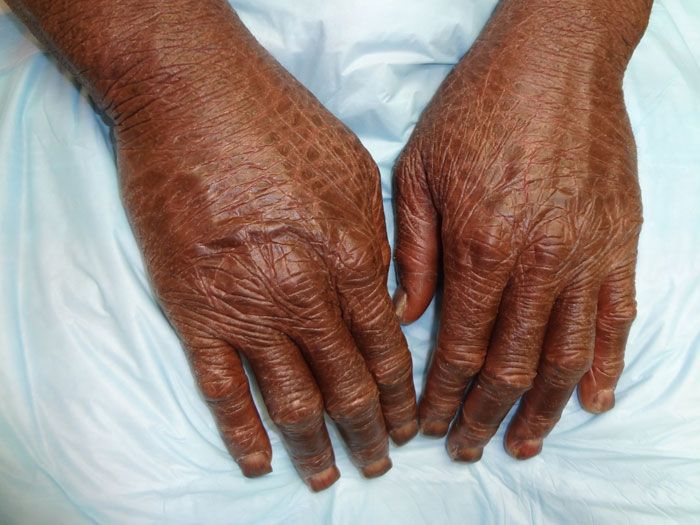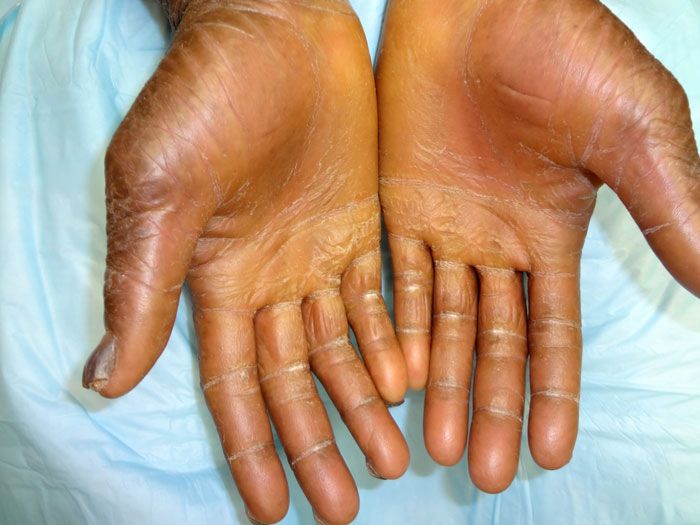- Clinical Technology
- Adult Immunization
- Hepatology
- Pediatric Immunization
- Screening
- Psychiatry
- Allergy
- Women's Health
- Cardiology
- Pediatrics
- Dermatology
- Endocrinology
- Pain Management
- Gastroenterology
- Infectious Disease
- Obesity Medicine
- Rheumatology
- Nephrology
- Neurology
- Pulmonology
Ichthyosis (“Fish-Scale Skin”)
Prominent, pigmented polyangular scales on the extensor surfaces of the arms, legs, and trunk suggested recessive X-linked ichthyosis. DNA analysis demonstrated an abnormal steroid sulfatase gene, which confirmed the diagnosis.


A 30-year-old man presented for treatment of a lifelong condition consisting of prominent skin dryness and scaling. Neither of his parents was similarly affected, nor were 3 sisters.
Key point: Prominent, pigmented polyangular scales were noted on the extensor surfaces of the arms, legs, and trunk. There was also diffuse thickening of the palms and soles. This is a classic presentation for ichthyosis, or “fish-scale skin.” This particular morphology, along with the patient’s family history strongly suggested recessive X-linked ichthyosis, a diagnosis confirmed by DNA analysis, which demonstrated an abnormal steroid sulfatase (STS) gene.
Treatment: There is no “cure” for a genetic abnormality. To ameliorate the dry scaling and palmo-plantar thickening, therapy with an oral retinoid along with topical application of a lactic acid–containing moisturizer was initiated.
Note: This disorder is not uncommon. It affects (to a variable degree) 1 in 2000 to 1 in 6000 American males. Because of the X-linkage of the recessive gene, women are not affected.
